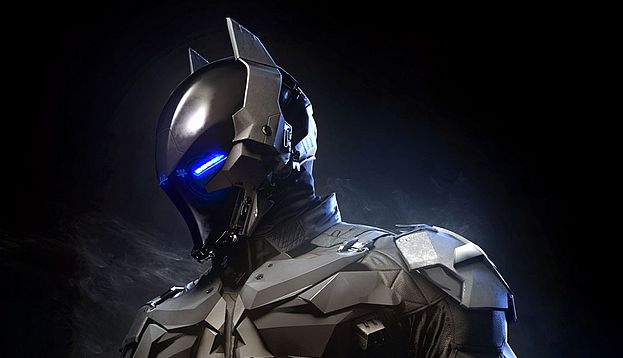While there are no doubt hot games that are dominating the world of mobile right now, it’s a market that’s certainly open for potential – at least, that’s how Warner Bros.’ games division sees it.
In an interview with GamesIndustry International, Greg Ballard, senior vice president of mobile, social and emerging platforms for Warner Bros. Interactive Entertainment, discussed the potential of mobile, and how the company can easily grasp its own part of the mobile picture with a number of hit brands, including Mortal Kombat, Batman and Game of Thrones, among others.
“If you aren’t already a leader, it has become very expensive to acquire customers,” says Greg Ballard, senior vice president of mobile, social and emerging platforms at WBIE. “The brands that a company like ours has allow us to acquire customers at a reasonable price. People want to be associated with our brands. They want to be Batman. It allows us to enter into the marketplace with slightly different economics to those that others have. Whether that leads to the number one or the number two slot, to some extent in this business it doesn’t matter.”
That said, there’s certainly room for success, even if a mobile brand isn’t exactly dominant. “You can make a lot of money at number 20, and, by the way, two years ago that wasn’t the case,” Ballard continued. “Two years ago we were much more concerned about the rigidity at the top of the charts. There just wasn’t that much money being made at numbers 10 through 20. Today, there’s money to be made even as a top 50 title. It’s a very robust market. It’s no longer winner take all. It’s winner take a lot, but not all.”
WB intends to pitch a number of its products towards different audience types, even those that thrive on free-to-play efforts like Clash of Clans and Candy Crush Saga. The target audience, according to Ballard, is “mid-core to core,” similar to the company’s console strategy with such upcoming releases as The Witcher III: Wild Hunt and Batman: Arkham Knight, both due for summer.
However, there are exceptions, like the company’s thriving Lego branded games. “That’s the exception,” said Ballard. “Nobody has really unlocked the secret box of how to monetize kids in a free-to-play environment. With that brand, and how carefully guarded it is – not just by Lego, but by Warner on behalf of Lego – we want to make sure that, if we ever go down that path, we are extremely careful in how we do it.
“So you take the two: free-to-play is difficult to do to begin with, but doing it with excellent standards regarding how to behave with kids, those are pretty big hurdles. We won’t make as much money on Lego titles as we do on free-to-play titles, but we do just fine. In the meantime, we continue to build that brand in a way that serves Legos interests and our own interests.”
All other mobile games, however, are aimed at older gamers with the possibility of long-term play in mind – even though “aggressive” monetization isn’t part of the picture. “If you took a snapshot, say, three or four years ago, some of the techniques in web-based games and eventually mobile were on the margin, probably not good. As a whole, I think the industry has really improved its behavior, and Apple and Google have encouraged that and made it easier for that to happen. In any environment where you have a lot of people competing for dollars, you’re always going to get some who don’t behave well. But you have to look at the behavior of 90 per cent of the market, and not that 10 percent,” said Ballard.
“In part, that progress has been a function of the marketplace, and not the fear of legislation. It’s because consumers can speak back, can refuse to buy, can organize themselves. Employing extreme [monetization] methods is counter-productive. The consumer is getting more and more sophisticated, and I think that ends up solving the problem far better than anything from outside.”
A lot of the strength in WB’s mobile games division will also come from effective marketing, as it previously displayed with Mortal Kombat X. “We’re very good at that. We do it as well as anybody in the entertainment business,” says Ballard. “It’s been going on for years in the console games business, but in a sense it’s still unique in mobile.
“You’ll see us doing traditional advertising. You’ll see us tagging on console commercials that the mobile game is out there as well. And you’ll see us generally using one of the world-class console marketing teams to bring awareness to mobile in a way that hasn’t been done before.”

